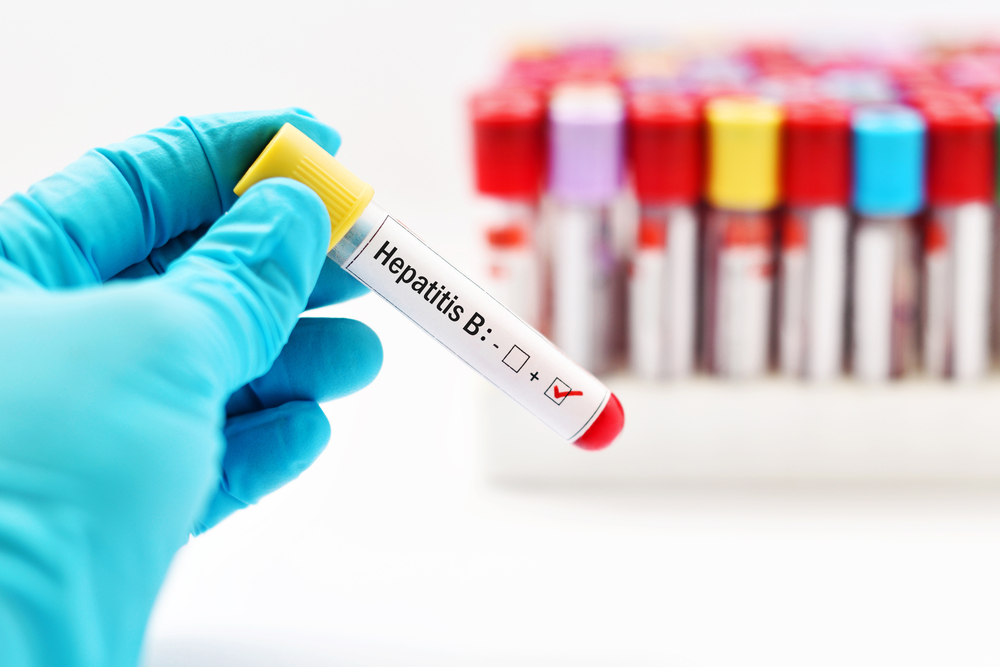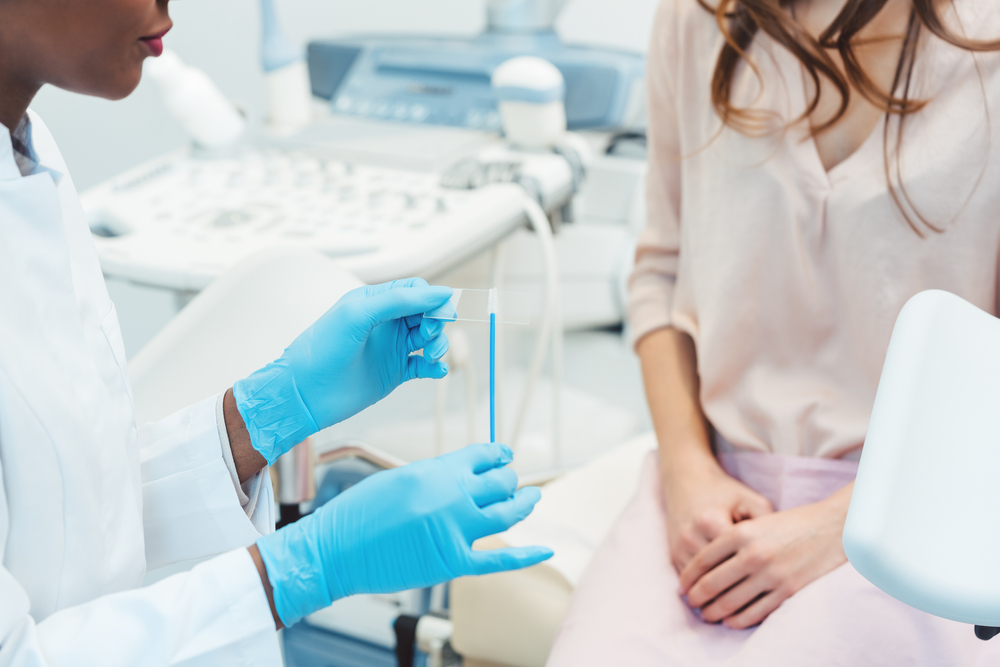If you are in a monogamous relationship, you may wonder whether you still need to use condoms or if you can still catch an STD even though you only have one partner. And this is a very common question.
Many people mistakenly assume that you can only catch STDs if you are promiscuous and sleep around with several partners.
Some people still even believe the misconception that AIDs is a disease that only affects homosexuals and drug addicts.
Even worse, you may have just tested positive for an STD even though you only had one partner, and your boyfriend swears that he hasn’t cheated.
So, how did you get an STD? Is that even possible?
If two people are in a truly monogamous relationship, they can’t pass STDs onto each other unless they already had an STD before they entered the relationship or if they cheated on their partner.
So, no, you can’t catch STDs in a monogamous relationship, but you and your partner should both get tested before ditching the condoms to make sure that you’re both clean.
Then, if you test positive for an STD later on in the relationship, it means that your partner has cheated on you – except in a few rare situations.
Table of Contents
How can you prevent STDs in a monogamous relationship?

STDs aren’t caused by sleeping around or homosexuality.
Simply put, it doesn’t matter if you have one partner or twenty partners. STDs are contracted when you have unprotected sex with an infected partner.
That said, it’s by far safer to have only one sexual partner than it is to have multiple partners.
But there are still precautions that you should take to prevent catching an STD.
Condoms are highly effective at reducing the risk of transmitting and contracting STDs, but the only surefire way to avoid catching an STD is to abstain from sex.
Both partners in a monogamous relationship should be tested for STDs before having unprotected sex, and they need to stay faithful to their partner.
Abstinence
Condoms aren’t 100% effective at preventing STDs, but they do have a relatively high success rate.
The only way to guarantee that you won’t catch an STD is to abstain from sex. But where is the fun in that?
Some couples may hold off on sex until marriage or at least until they get to know each other better, but few are willing to remain abstinent for a long time.
Condoms

Birth control pills are effective at preventing pregnancy, but they provide no defense whatsoever against STDs.
Condoms will protect you from catching STDs, but they occasionally break or slip. Even so, they are still your best shot at avoiding a nasty or even deadly infection.
Getting tested
While it’s always a good idea to know your status, it won’t protect you from contracting an STD unless you also know your partner’s status.
If you’re still casually dating, it’s probably not realistic for you to drag every one of your hook-ups down to the clinic for lab work.
But STD testing is an essential step and one of your best defenses if you are in a monogamous relationship.
STDs can’t develop on their own in the human body, so if you and your partner both test negative before having unprotected sex, they won’t be able to give you an STD- as long as they don’t cheat.
Monogamy
In order for a relationship to be monogamous, both partners need to remain faithful. If you don’t fully trust your partner not to cheat, it’s best to continue to use condoms.
But if both of you are only intimate with each other and neither of you already had an STD from a previous relationship, then no, you cannot catch an STD.
But there are a few exceptions…
When can you catch an STD in a monogamous relationship?

So, as long as you both test negative and don’t cheat, you should be good, right? In most cases, yes. But there are some STDs that can be transmitted without sex.
Sure, they are called sexually transmitted diseases because they are infections that can be passed between sexual partners, but some STDs can also be transmitted by other types of contact with infected bodily fluids.
HIV can be transmitted by sharing dirty needles, childbirth (mother to child), and other forms of contact with infected blood, such as in the healthcare industry.
Hepatitis can also be caught by contact with infected bodily fluids, especially when sharing needles.
Hopefully, you’re not dating a drug addict, but girls have been known to fall for bad boys. And if your man was born with HIV, it would’ve shown up when he was tested.
While viruses can technically be spread in the healthcare industry, this is very rare, as precautions are almost always taken, and healthcare professionals are offered post- exposure prophylaxis.
But there are a few things that you should be aware of…
HIV transmission
You can’t catch HIV from toilet seats, saliva, or eating food cooked by a person with HIV, but it can be transmitted in ways other than sex.
For instance, you can catch HIV from contact with a bleeding cut or open mouth sore, but this is very rare.
Mainly, HIV is transmitted through vaginal, anal, and (occasionally) oral sex, but it can also be transmitted through sharing needles, childbirth, and blood transfusions.
Fortunately, you can prevent HIV by taking pre-exposure prophylaxis if you are at high risk or in a mixed-status relationship.
Types of hepatitis

Hepatitis is commonly known as an STD, but there are actually three different types of hepatitis.
Hepatitis B is the one that is most often contracted through sex, whereas hepatitis C is transmitted through any contact with blood, usually from sharing needles. Hepatitis A is food borne.
If your partner suddenly tests positive for a certain type of hepatitis, it doesn’t necessarily mean that they cheated. But you are still at risk.
Spreading herpes
Although you can’t catch herpes from objects like spoons or toilet seats, oral herpes can be spread without sexual contact.
Mothers can even give their children herpes by kissing them, so this STD can very well be spread by steamy make-out sessions with random people.
However, genital herpes is only transmitted through sexual contact or childbirth. So, if your partner claims they caught genital herpes from a toilet seat, they’re lying.
Vaginal infections
It should also be noted that not all vaginal infections are sexually transmitted.
You are probably already all too familiar with yeast infections and aware that women can get them even if they abstain from sex.
But you can also develop bacterial vaginosis without sexual contact.
If you’ve never heard of this nasty infection, it’s easy to assume that it’s an STD from the name alone, but it’s not.
Asymptomatic STDs

This is one of the main reasons why you and your partner should both be tested for STDs before engaging in unprotected sex – not all STDs are symptomatic.
Herpes can lie dormant for a long time with no sign of an outbreak. Many people who have chlamydia, gonorrhea, and trichomoniasis don’t exhibit any symptoms.
Most strains of HPV don’t cause any symptoms except for the genital warts strain. But HPV has been linked to cervical cancer in women.
Often, people walk around with STDs and don’t even know it.
If you take nothing else from this article, hopefully you’ve realized how important it is to know your status – even if you are only with one partner.




